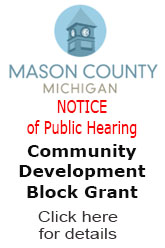
Today’s column grew out of a conversation we had in the office at work, along about the 8th or 9th of August this year. As you probably know, we are only allowed to vote in one party in a primary election. If you vote for candidates in more than one party, the ballot is invalid and none of your choices will be counted. Someone in the office had complained that they didn’t like being restricted to voting in only one political party in the primary. Somebody else said it didn’t matter, because all the primary was intended for was to narrow the race down to one person from each party. I guess that’s fine if you’re a strict, party-line voter. But if you want the choice to vote for the individual instead of for the party, our present system may not give it to you.
For example, say you are a card-carrying, flag-waving member of the Triangle Party. Normally, you would vote a straight ticket for your Triangle candidates, and everything would be good in your world.
Now say that in one election, both of your Triangle Party candidates are idiots. However, one guy (or gal) running on the Circle Party ticket is making some good sense. Their competitor, a well-liked and charismatic individual also running on the Circle Party ticket is also an idiot. The Circle Party idiot has a good chance of winning their primary. Under the present system, you have two choices:
You can vote for all your chosen candidates in your Triangle Party, and not vote at all for the office where 3 out of 4 candidates are idiots. In this case, there is a high likelihood that the office will have one Triangle Party idiot and one Circle Party idiot running in November. Or, you can cross over to vote for the Circle party’s sensible candidate, and you’ll have to give up your right to vote on every other office on the ballot.
That just doesn’t seem right to me. Sure it’s “only a primary”, but if you can’t vote for the person you feel is the best candidate because of some imposed restriction about crossing party lines, is that really freedom of choice? If someone can’t have your support in the primary and make the first cut, you might not get the chance to vote for them in the November election.
This is an example of how party loyalties seem to be superseding our rights to choose the individual. I would prefer to be able to vote for whoever I want to in the primary, since I claim no party affiliation. Allowing people to do so would take nothing away from those who stick to party lines, but it would open up more freedom to choose for those of us who may not.
© 2012, J. Cools

















.jpg)























 (1).gif)












.png)






